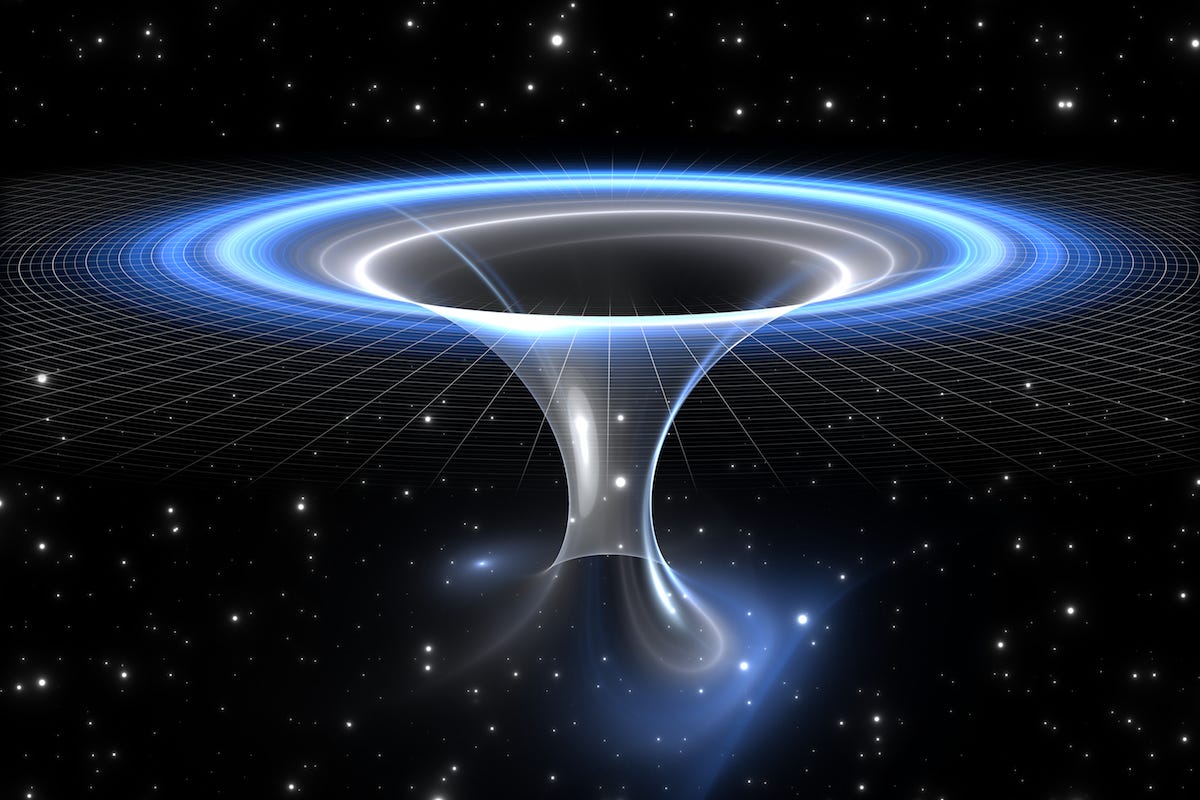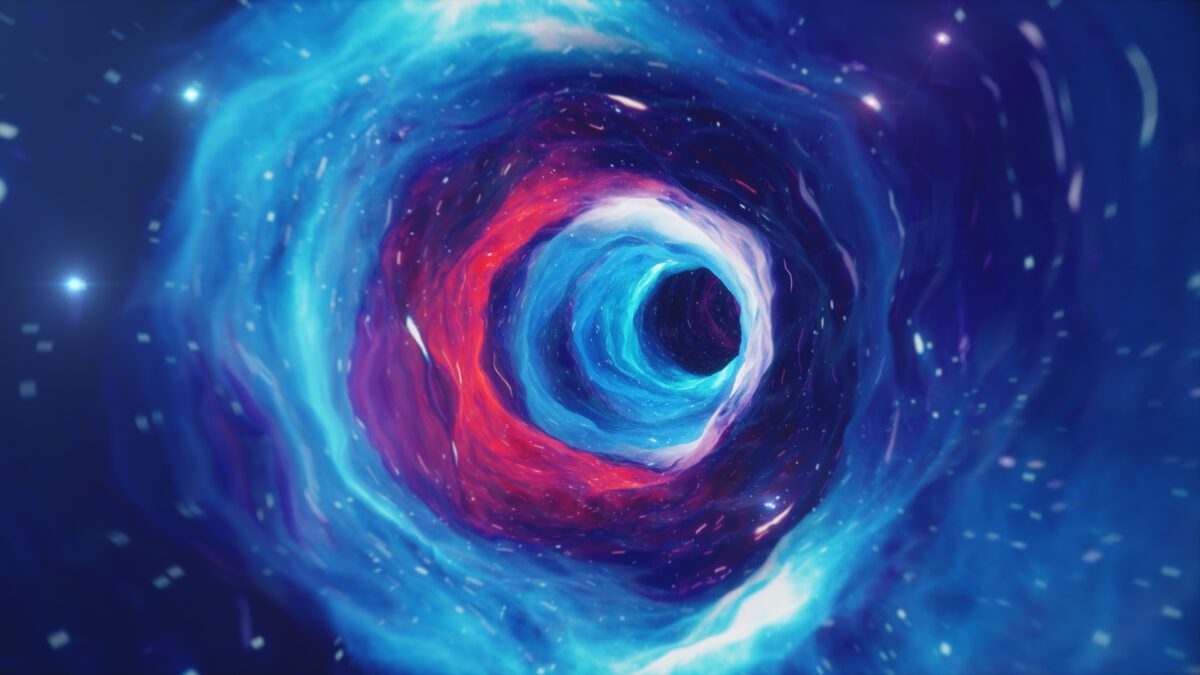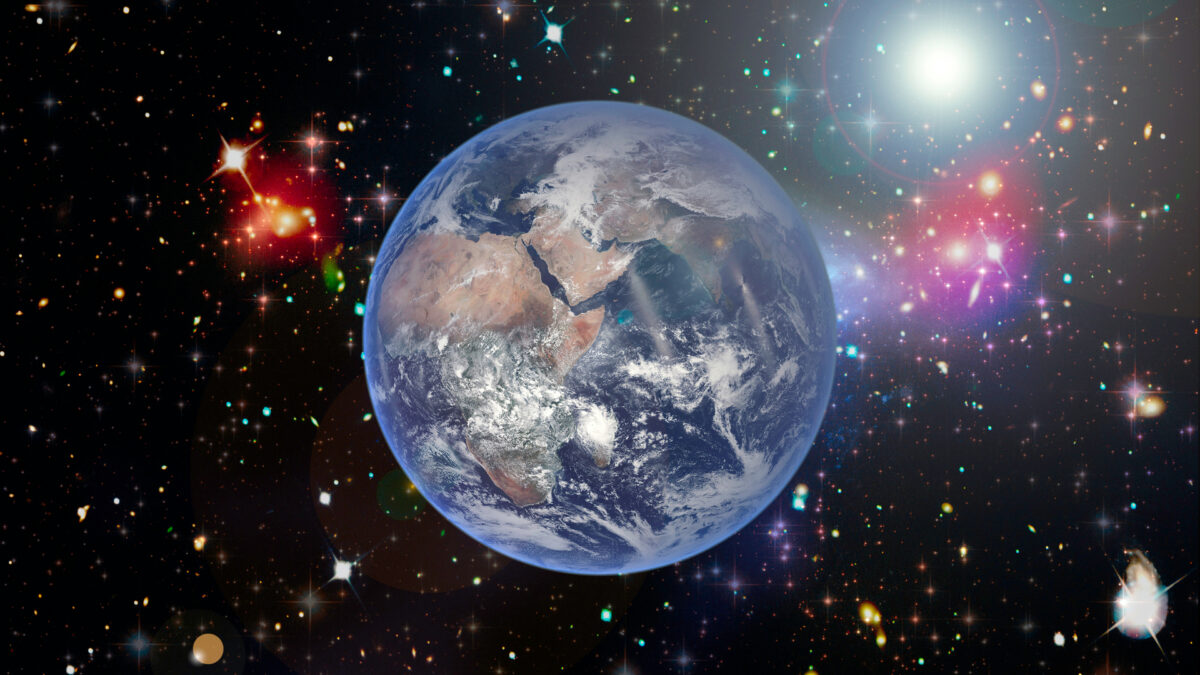Our ancestors understood origins by extrapolating from their own experiences. How else could they have done it? So the Universe was hatched from a cosmic egg, or conceived in the sexual congress of a mother God and a father God, or was a kind of product of the Creator’s workshop—perhaps the latest of many flawed attempts. And the Universe was not much bigger than we see, and not much older than our written or oral records, and nowhere very different from places that we know.
We’ve tended in our cosmologies to make things familiar. Despite all our best efforts, we’ve not been very inventive. In the West, Heaven is placid and fluffy, and Hell is like the inside of a volcano. In many stories, both realms are governed by dominant hierarchies headed by gods or devils. Monotheists talked about the King of Kings. In every culture, we imagined something like our own political system running the Universe. Few found the similarity suspicious.
Then science came along and taught us that we are not the measure of all things, that there are wonders unimagined, and that the Universe is not obliged to conform to what we consider comfortable or plausible. We have learned something about the idiosyncratic nature of our common sense. Science has carried human self-consciousness to a higher level. This is surely a rite of passage, a step towards maturity. It contrasts starkly with the childishness and narcissism of our pre-Copernican notions.
And, again, if we’re not important, not central, not the apple of God’s eye, what is implied for our theologically based moral codes? The discovery of our true bearings in the Cosmos was resisted for so long and to such a degree that many traces of the debate remain, sometimes with the motives of the geocentrists laid bare.
What do we want from philosophy and religion? Palliatives? Therapy? Comfort? Do we want reassuring fables or an understanding of our actual circumstances? Dismay that the Universe does not conform to our preferences seems childish. You might think that grown-ups would be ashamed to put such disappointments into print. The fashionable way of doing this is not to blame the Universe—which seems truly pointless—but rather to blame the means by which we know the Universe, namely science.
Science has taught us that, because we have a talent for deceiving ourselves, subjectivity may not freely reign. Its conclusions derive from the interrogation of nature and are not in all cases predesigned to satisfy our wants.
We recognize that even revered religious leaders, the products of their time as we are of ours, may have made mistakes. Religions contradict one another on small matters, such as whether we should put on a hat or take one off on entering a house of worship, or whether we should eat beef and eschew pork or the other way around, all the way to the most central issues, such as whether there are no Gods, one God, or many gods.
If you lived two or three millennia ago, there was no shame in holding that the Universe was made for us. It was an appealing thesis consistent with everything we knew; it was what the most learned among us taught without qualification. But we have found out much since then. Defending such a position today amounts to willful disregard of the evidence, and a flight from self-knowledge.
We long to be here for a purpose, even though, despite much self-deception, none is evident.
Our time is burdened under the cumulative weight of successive debunking of our conceits:
- We’re Johnny-come-latelies
- We live in the cosmic boondocks
- We emerged from microbes and muck
- Apes are our cousins
- Our thoughts and feelings are not fully under our own control
- There may be much smarter and very different beings elsewhere.
- On top of all this, we’re making a mess of our planet and becoming a danger to ourselves.
The trapdoor beneath our feet swings open. We find ourselves in bottomless free fall. We are lost in great darkness, and there’s no one to send out a search party. Given so harsh a reality, of course, we’re tempted to shut our eyes and pretend that we’re safe and snug at home, that the fall is only a bad dream.
Once we overcome our fear of being tiny, we find ourselves on the threshold of a vast and awesome Universe that utterly dwarfs—in time, in space, and in potential—the tidy anthropocentric proscenium of our ancestors:
- We gaze across billions of light-years of space to view the Universe shortly after the Big Bang and plumb the fine structure of matter.
- We peer down into the core of our planet, and the blazing interior of our star.
- We read the genetic language in which is written the diverse skills and propensities of every being on Earth.
- We uncover hidden chapters in the record of our own origins, and with some anguish better understand our nature and prospects.
- We invent and refine agriculture, without which almost all of us would starve to death.
- We create medicines and vaccines that save the lives of billions.
- We communicate at the speed of light and whip around the Earth in an hour and a half.
- We have sent dozens of ships to more than seventy worlds, and four spacecraft to the stars.
To our ancestors, there was much in nature to be afraid of—lightning, storms, earthquakes, volcanos, plagues, drought and long winters. Religions arose in part as attempts to propitiate and control, if not much to understand, the disorderly aspect of nature.
How much more satisfying had we been placed in a garden custom-made for us, its other occupants put there for us to use as we saw fit? There is a celebrated story in the Western tradition like this, except that not quite everything was there for us. There was one particular tree of which we were not to partake, a tree of knowledge. Knowledge and understanding and wisdom were forbidden to us in this story. We were to be kept ignorant. But we couldn’t help ourselves. We were starving for knowledge—created hungry, you might say. This was the origin of all our troubles. In particular, it is why we no longer live in a garden: We found out too much. So long as we were incurious and obedient, I imagine, we could console ourselves with our importance and centrality, and tell ourselves that we were the reason the Universe was made. As we began to indulge our curiosity, though, to explore, to learn how the Universe really is, we expelled ourselves from Eden. Angels with a flaming swords were set as sentries at the gates of Paradise to bar our return. The gardeners became exiles and wanderers. Occasionally we mourn that lost world, but that, it seems to me, is maudlin and sentimental. We could not happily have remained ignorant forever.
There is in this Universe much of what seems to be designed. But instead, we repeatedly discover that natural processes—the collisional selection of worlds, say, or natural selection of gene pools, or even the convection pattern in a pot of boiling water—can extract order out of chaos, and deceive us into deducing purpose where there is none.
The significance of our lives and our fragile planet is then determined only by our wisdom and courage. We are the custodians of life’s meaning. We long for a parent to care for us, to forgive us for our errors, and to save us from our childish mistakes. But knowledge is preferable to ignorance. Better by far to embrace the hard truth than a reassuring fable.
If we crave some cosmic purpose, then let us find ourselves a worthy goal.

 English
English French
French German
German





